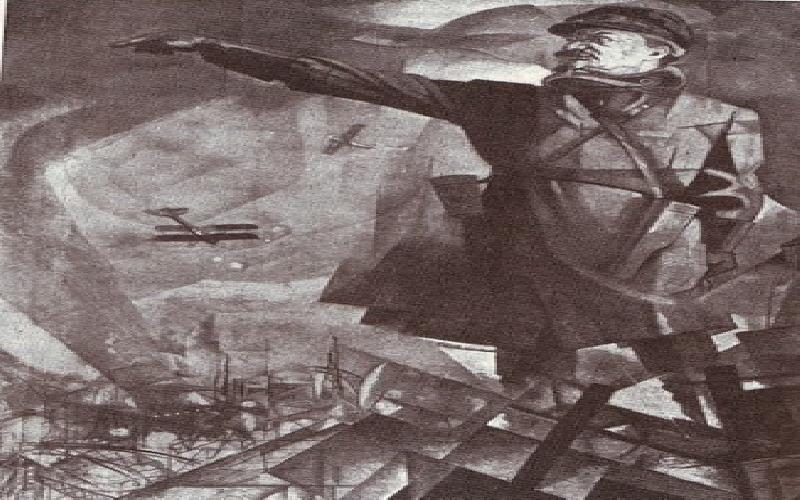Leon Trotsky Challeneged Stalin


The man who planned the storming of the Winter Palace in Petrograd to allow the Soviets to take power. Often thought as Lenin's successor until Stalin took over.
During 1879 in the Ukrainian town of Yanakova a Jewish couple Mr and Mrs Bronstein celebrated the birth of their son Lev.
The academically brilliant Lev Bronstein went on to study at the University of Odessa where he became interested in highly subversive left wing political groups. It was during these early years as a fiery Marxist activist that he changed his name to Leon Trotsky. Many of his fellow Marxists also adopted aliases in generally vain attempts to avoid the attention of the Tsarist secret police.
It was during a spell of foreign exile in Britain that Trotsky became a devout follower of Vladimir Lenin and an important member of the Bolshevik party. He first came to national and international prominence as the head of the St Petersburg Soviet during the revolutionary year of 1905.
The Tsarist authorities however regained control and may have averted disaster but for the First World War. Leon Trotsky played a highly significant role in the October Revolution of 1917 being the chief planner of the storming of the Winter Palace.
Such was his gift for military command that he was entrusted with setting up the Red Army and winning the Russian Civil War. He fared less well with the war against Poland losing large areas of his native Ukraine.
Over all his reputation as a revolutionary theorist and military leader meant he was expected to be Lenin's successor.
Trotsky however failed to succeed Lenin and was thrown out of the USSR by Joseph Stalin. He contended that the Soviets had to spread revolution across the globe whilst Stalin consolidated power at home first. Trotsky's critical pronouncements against the Stalinist regime made him one of the NKVD's prime targets. They caught up with him in Mexico City in 1940 and murdered him infamously with an ice pick.
Bibliography
Castledon R (2005) The World's Most Evil People, Time Warner
Palmowski J (2008) Oxford Dictionary of Contemporary World History, Oxford
Woodruff, W (2005) A Concise history of the Modern World, Abacus, London
At home, in school, in park, on roads, everywhere children are at risk. Whenever I open newspaper, almost in every page there is a news about crime against children specially girl child.
A short look back at a period in which many of the things which are now considered obsolete used to play an important part in my life.
After God led me to preach a message on Matthew 7:6, He directed me to do a follow-up message based on the substance He uses to create a pearl: nacre or otherwise known as mother of pearl..